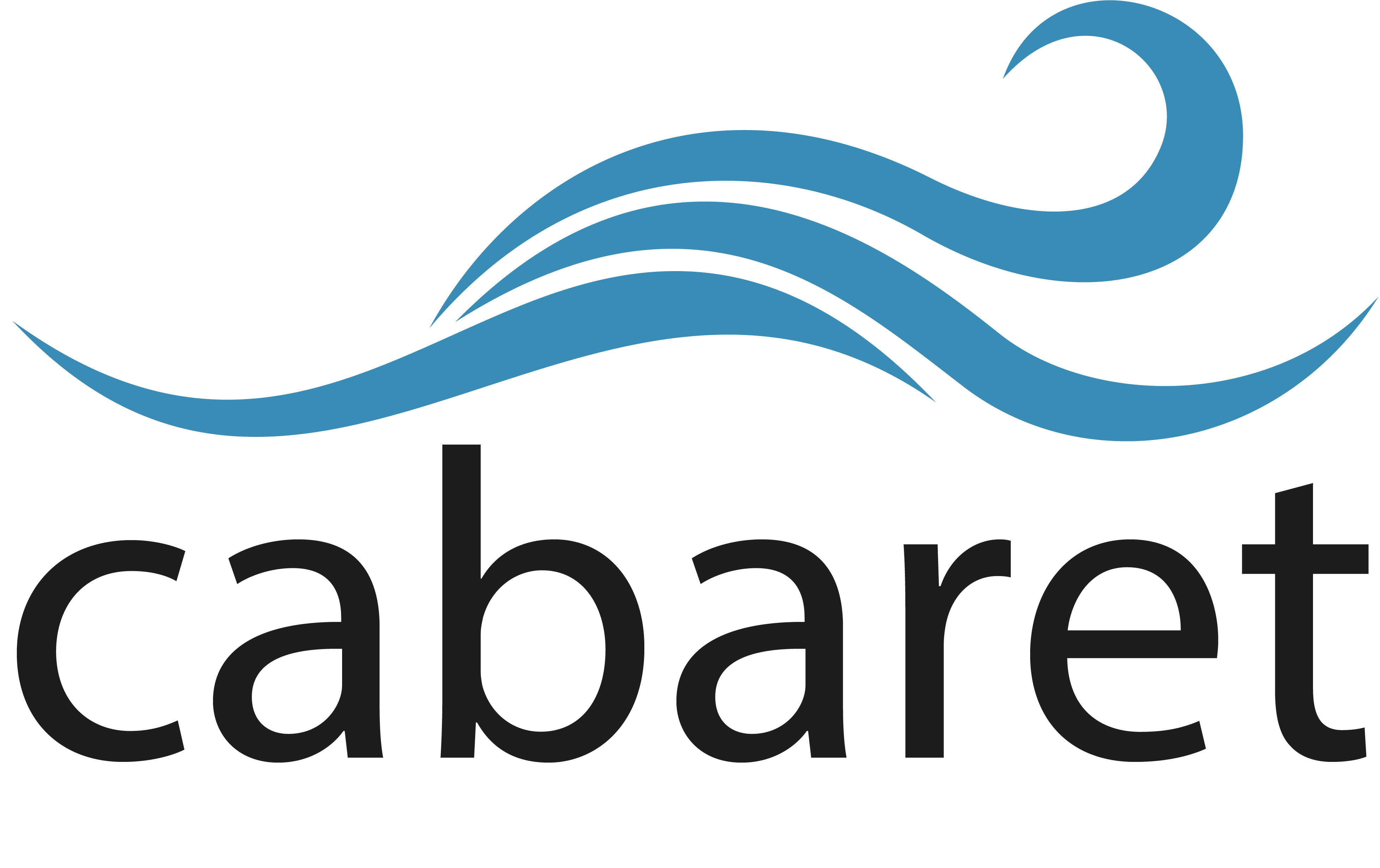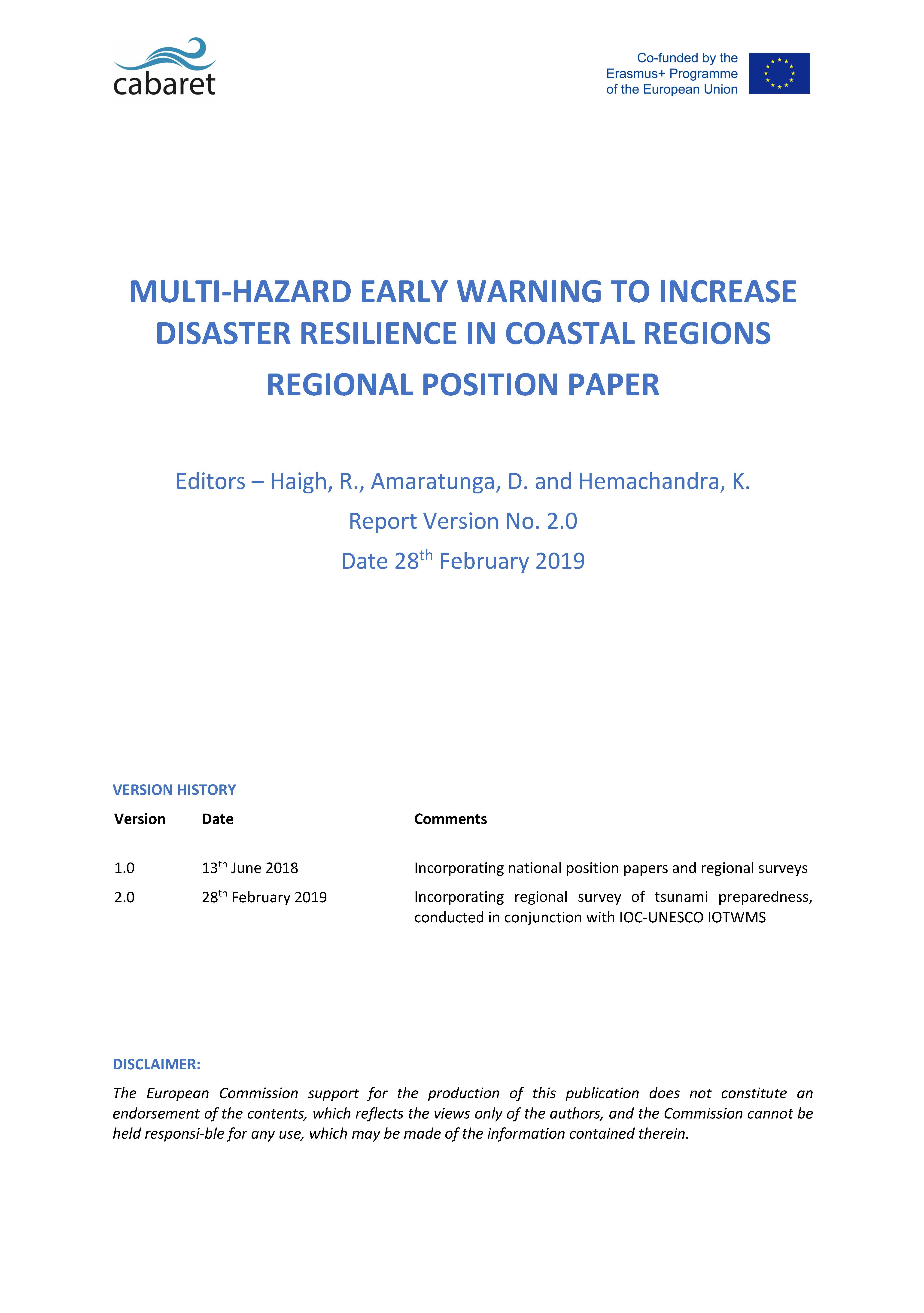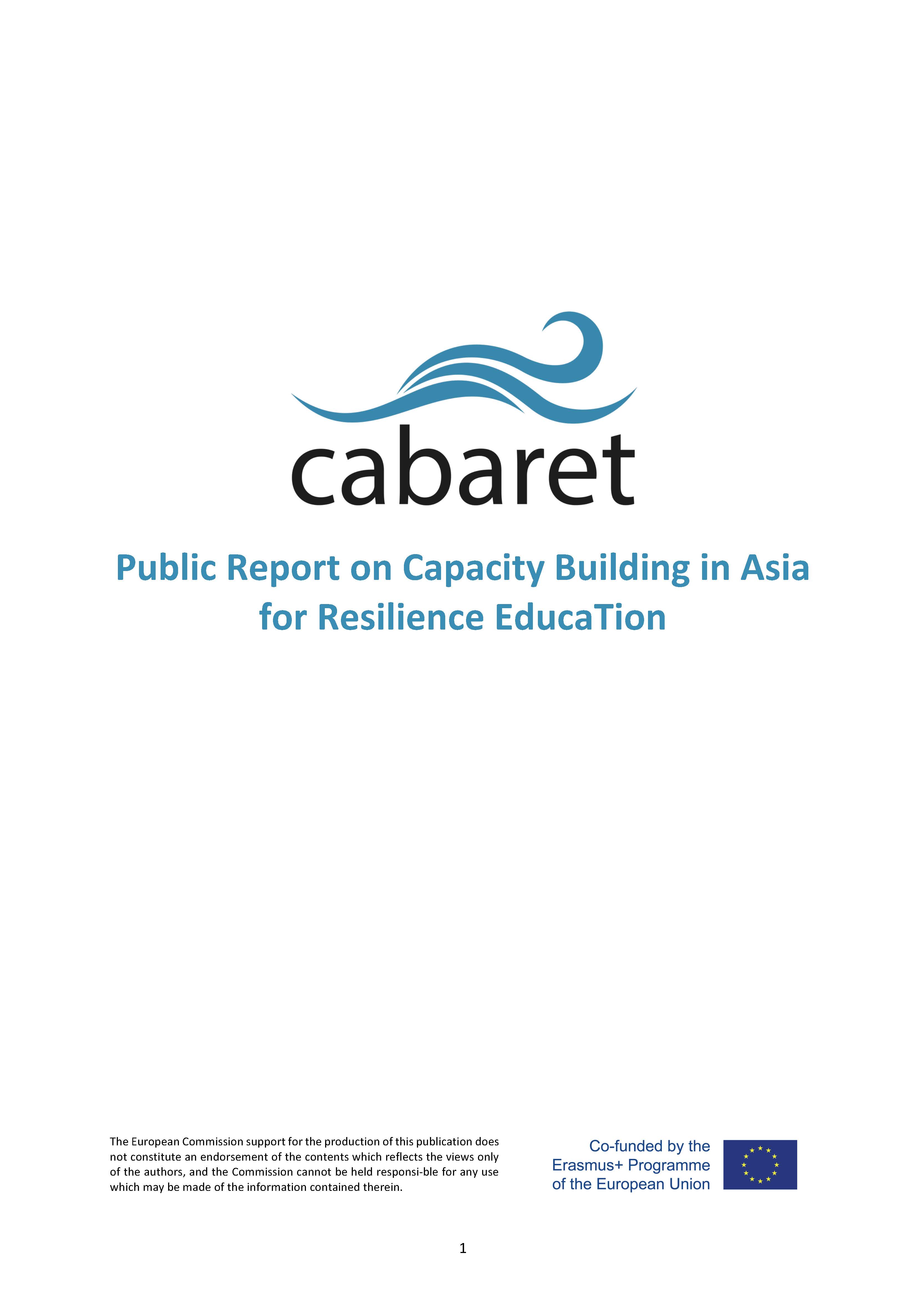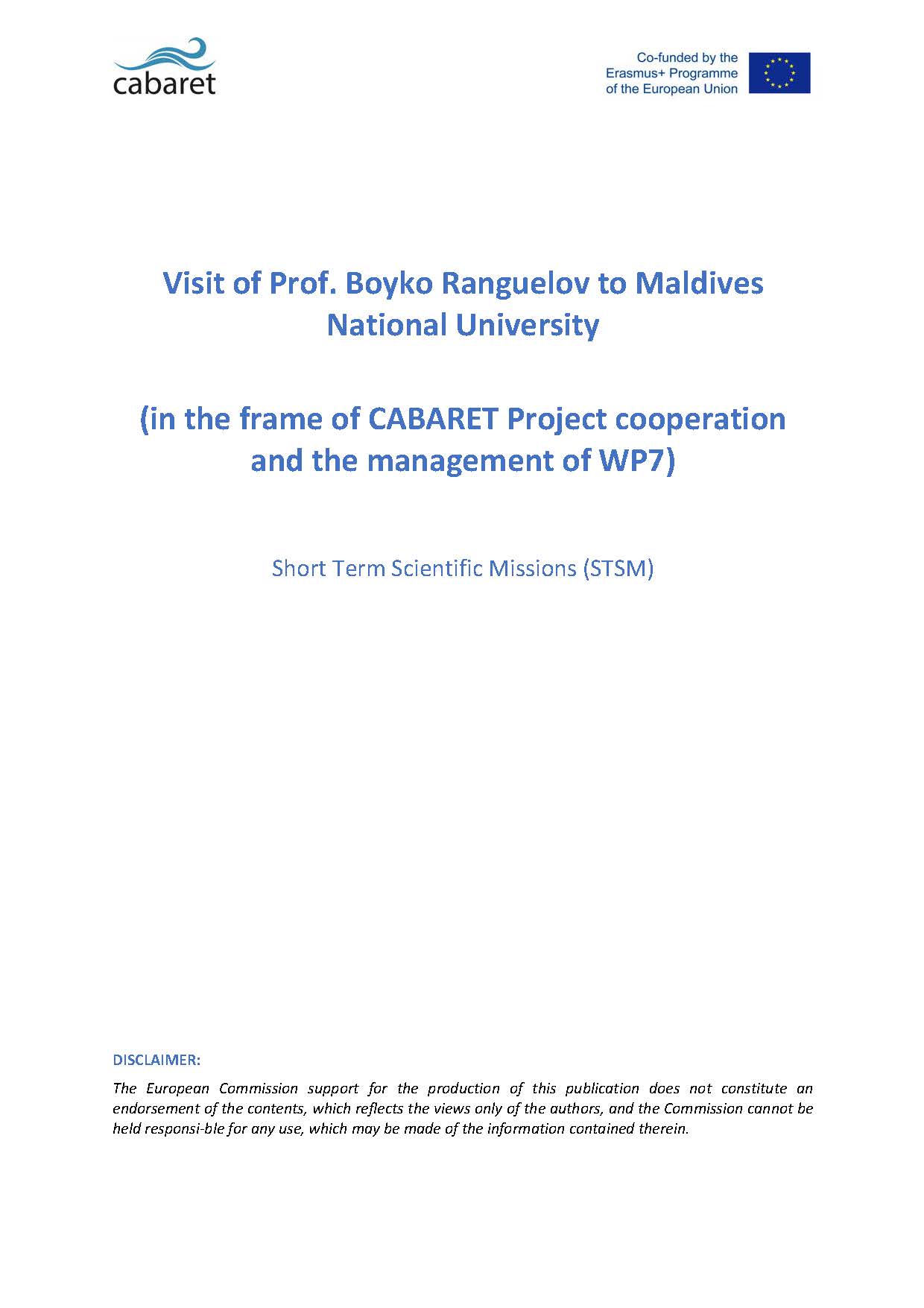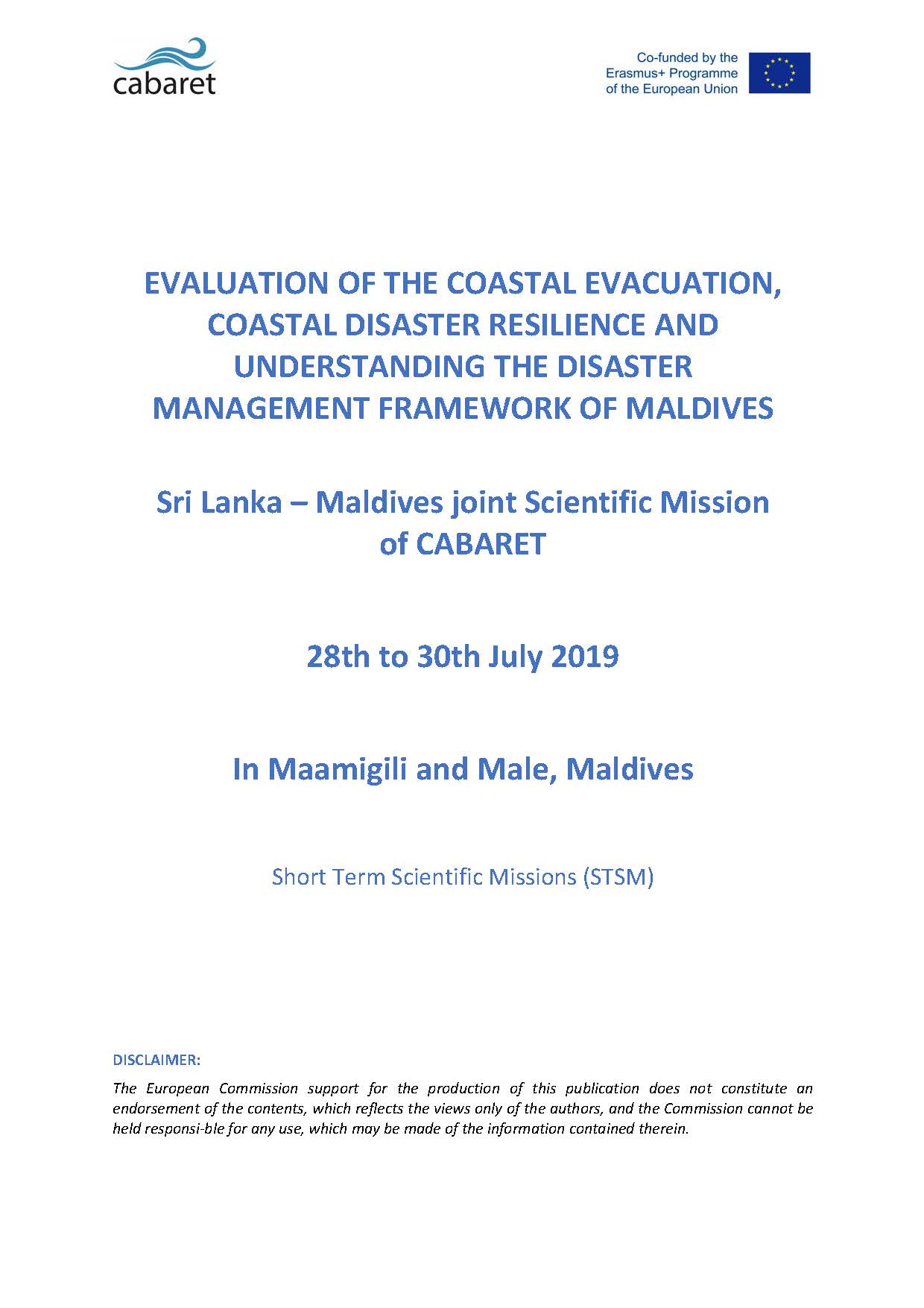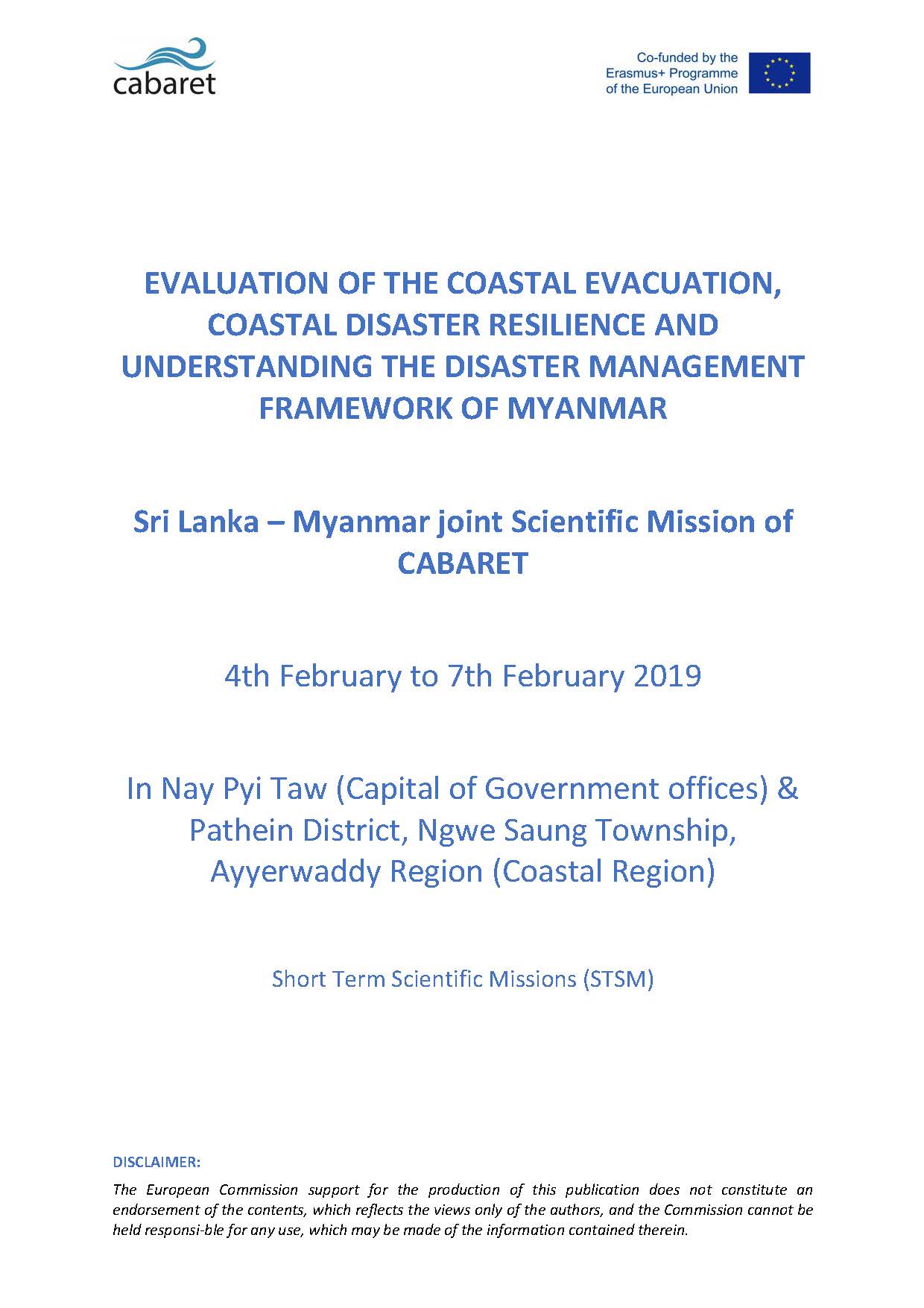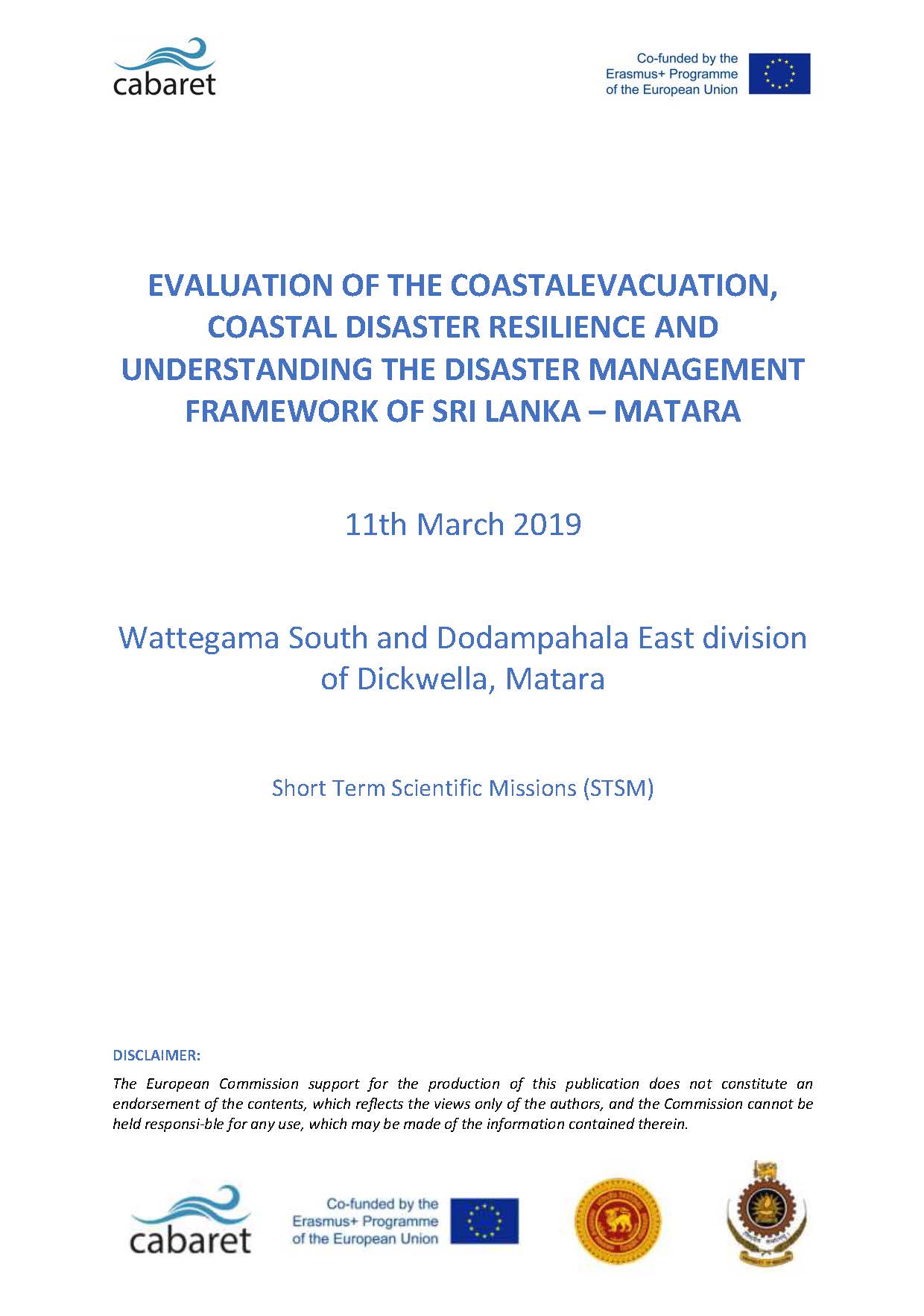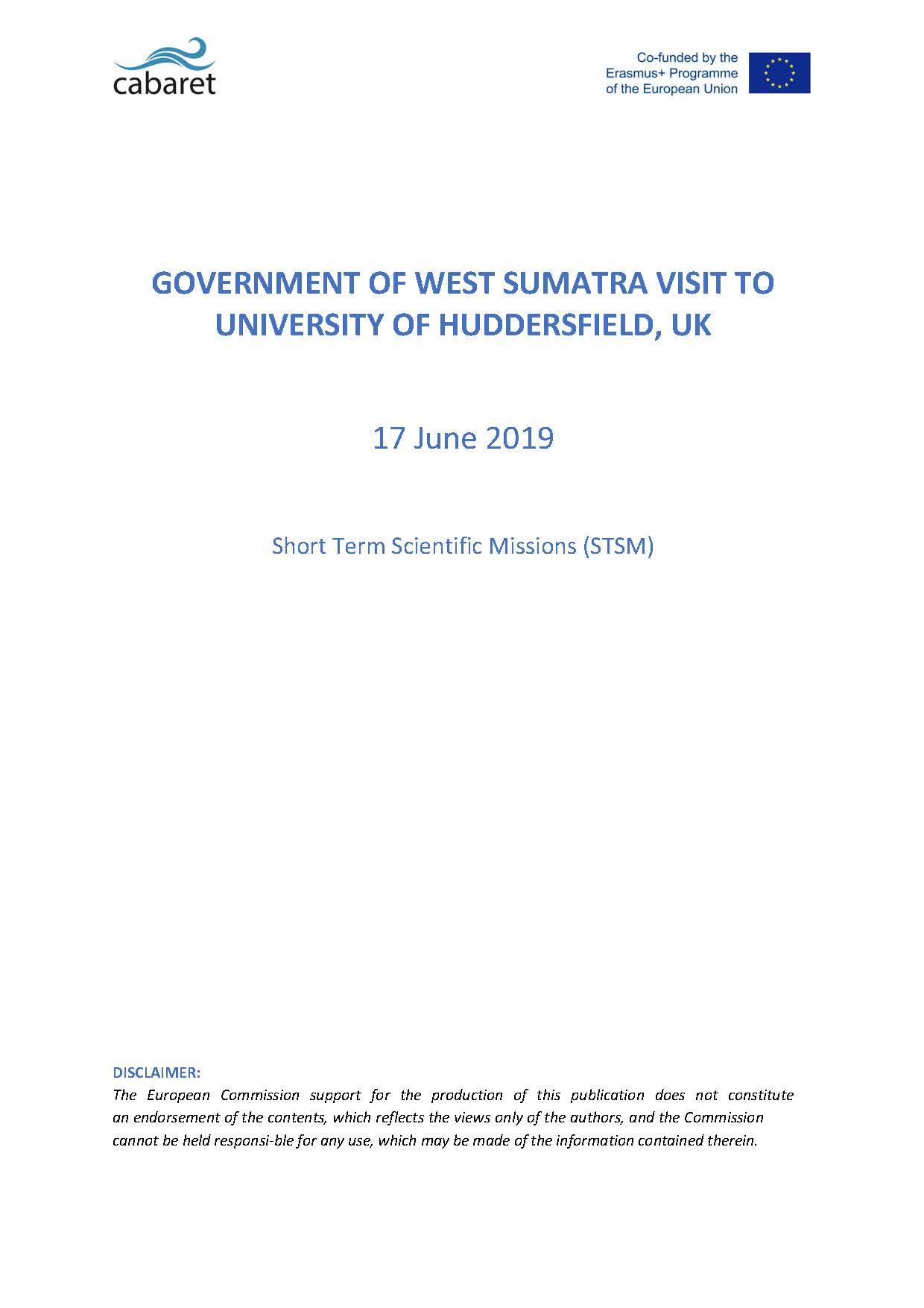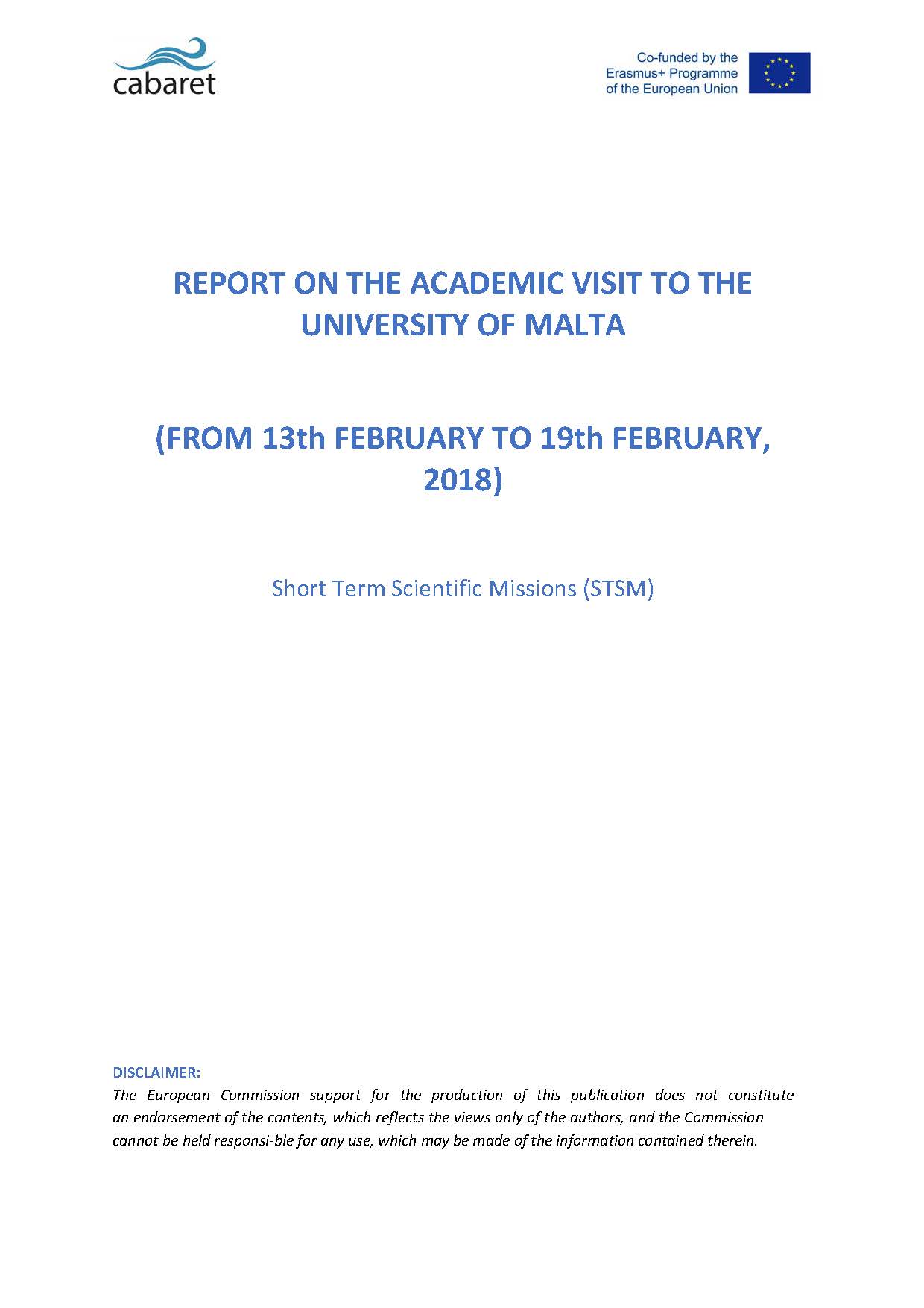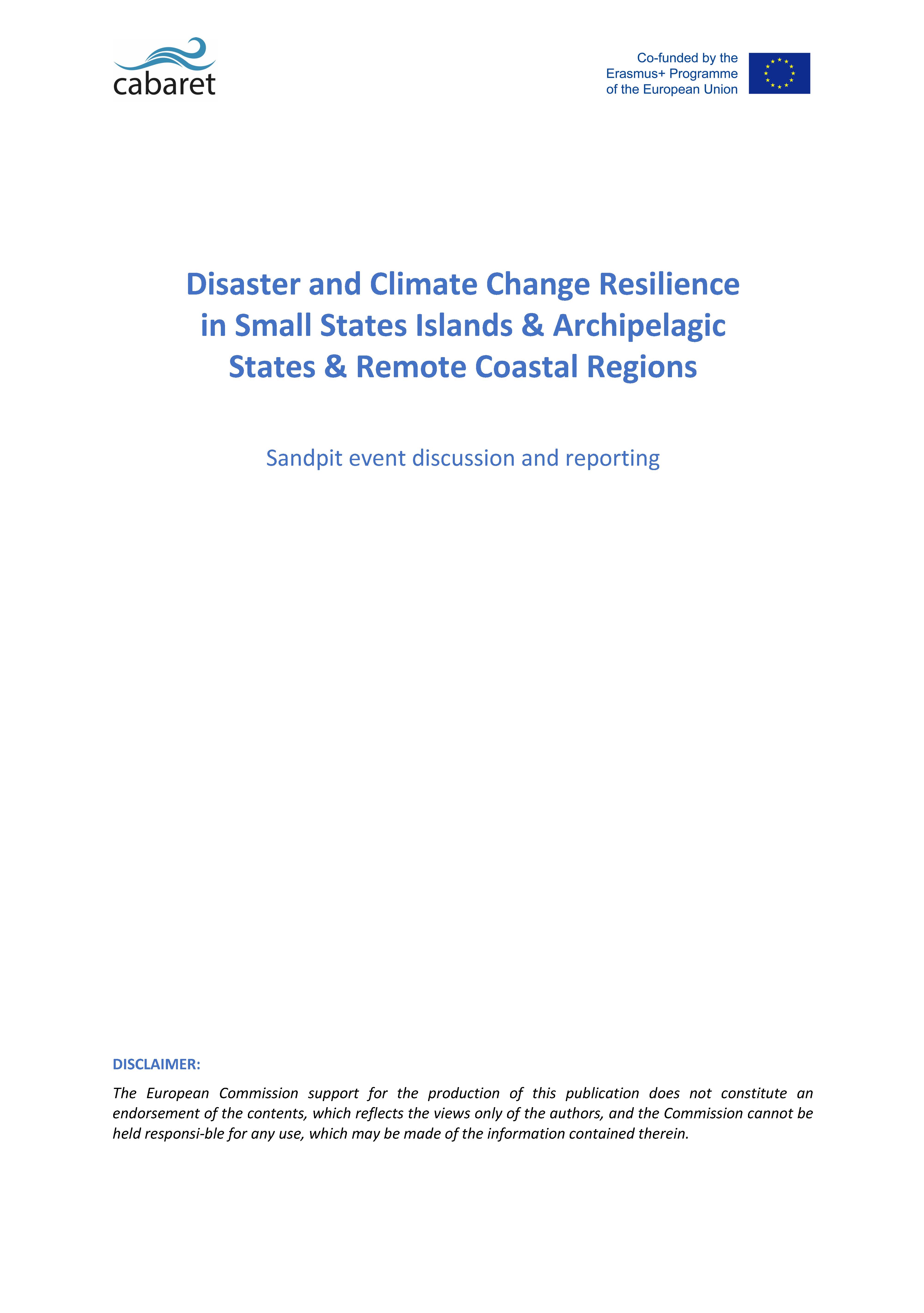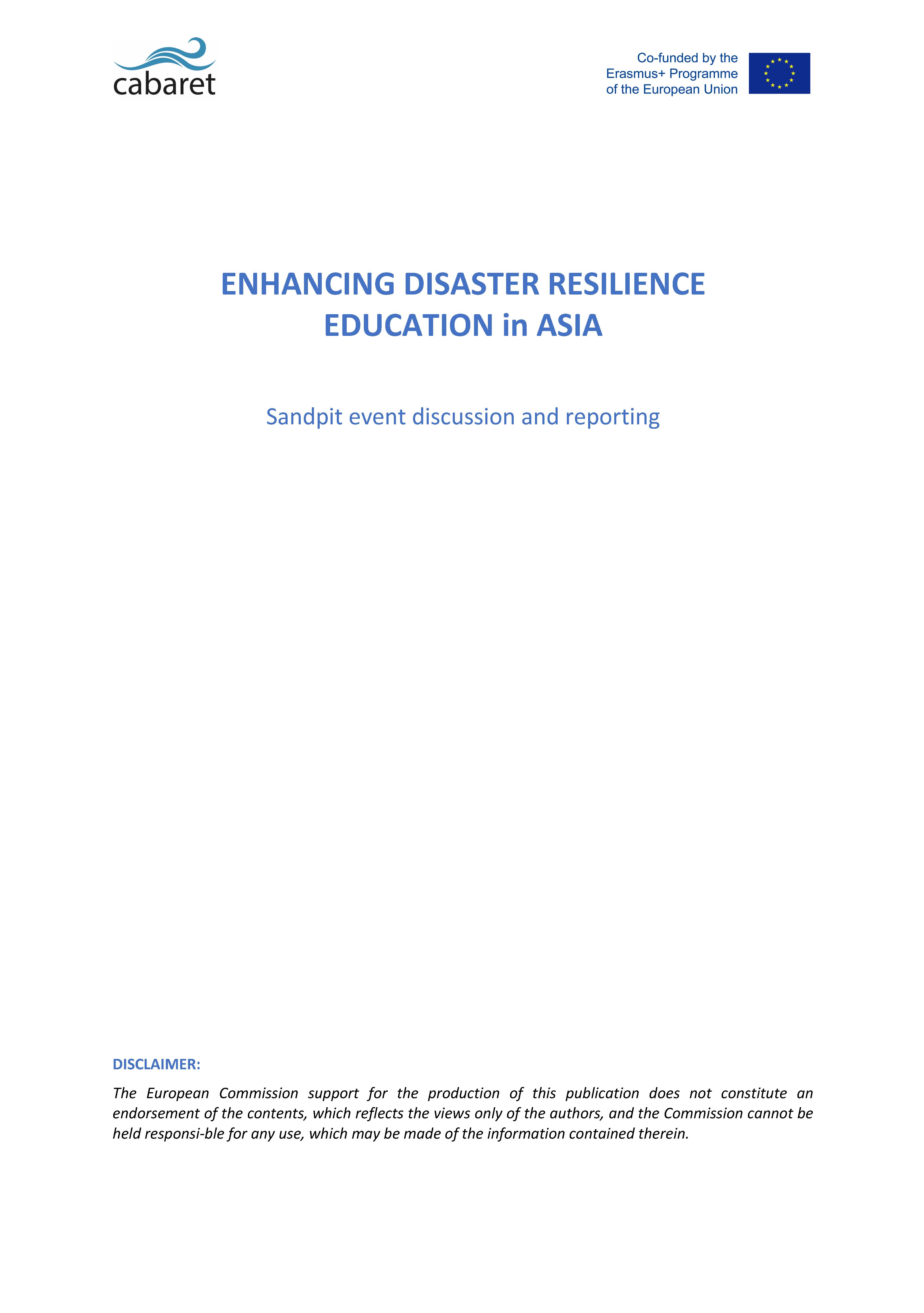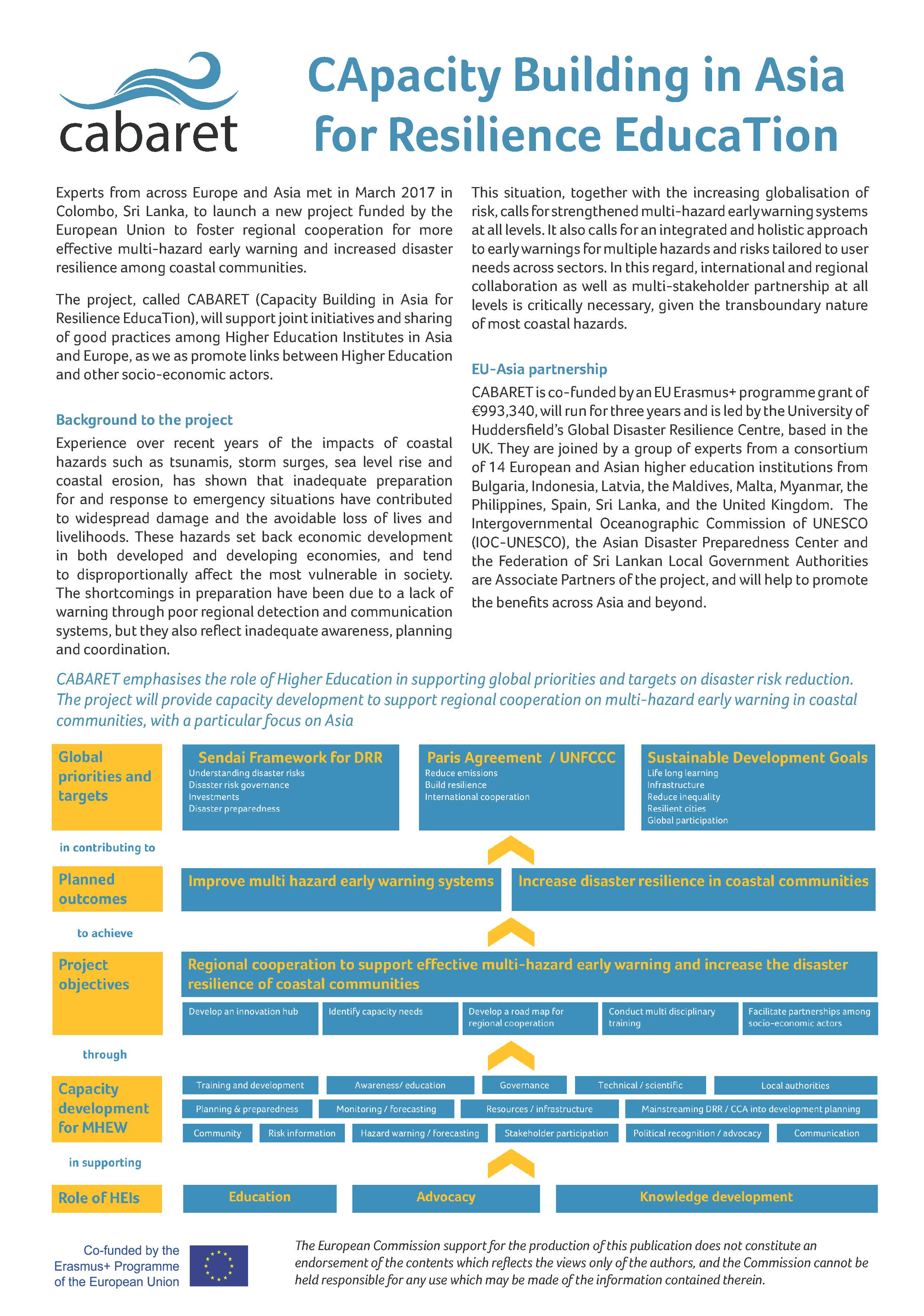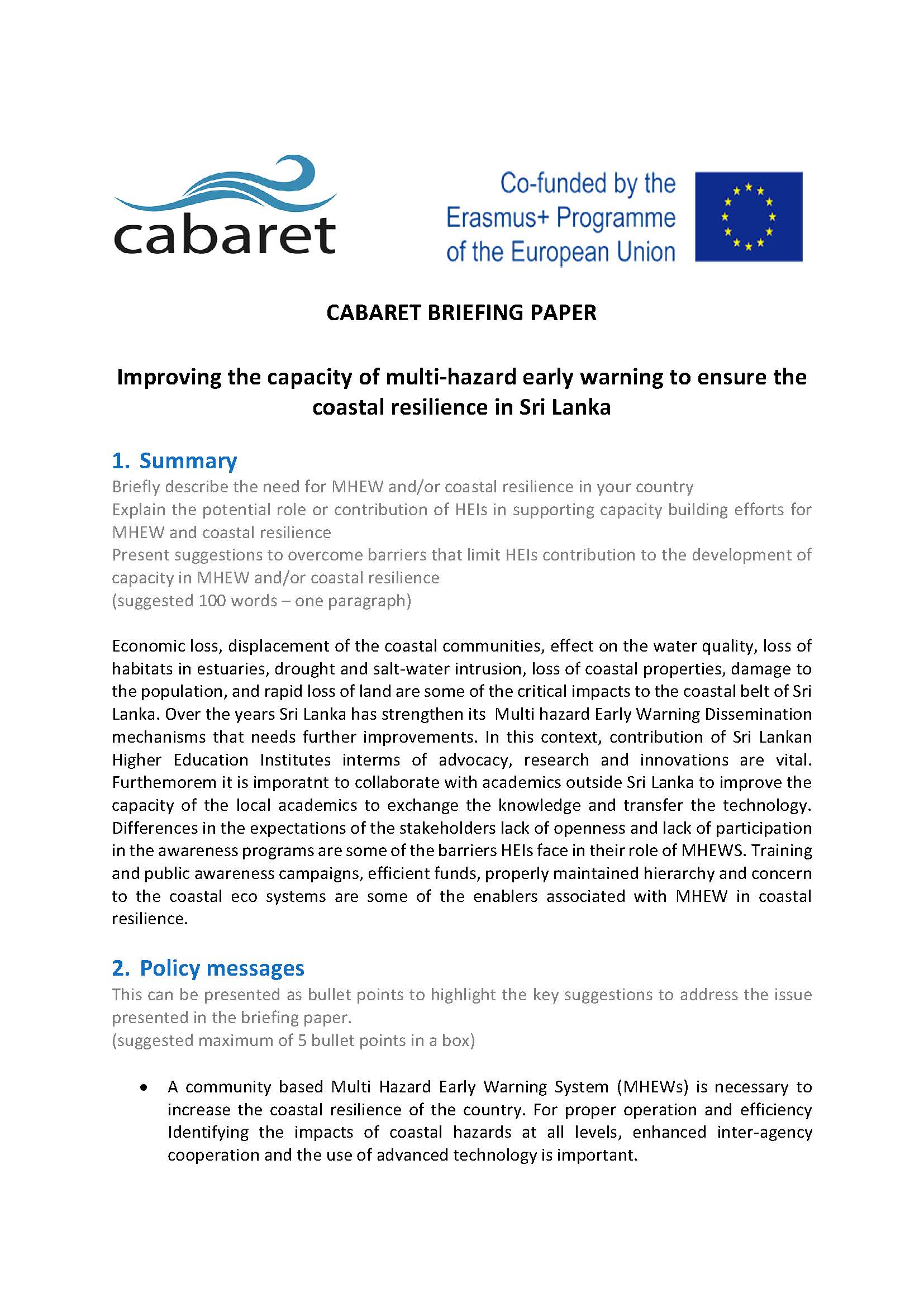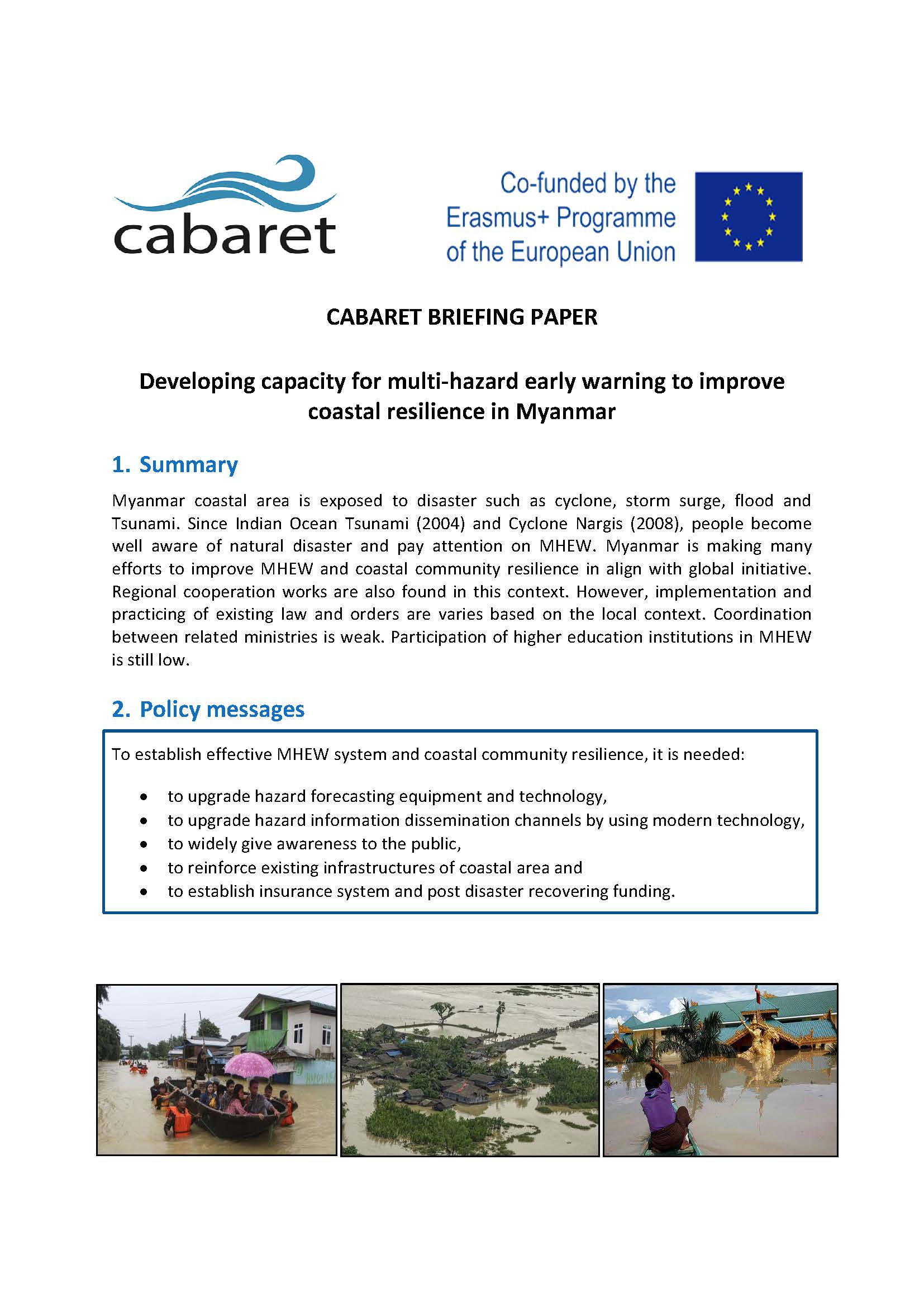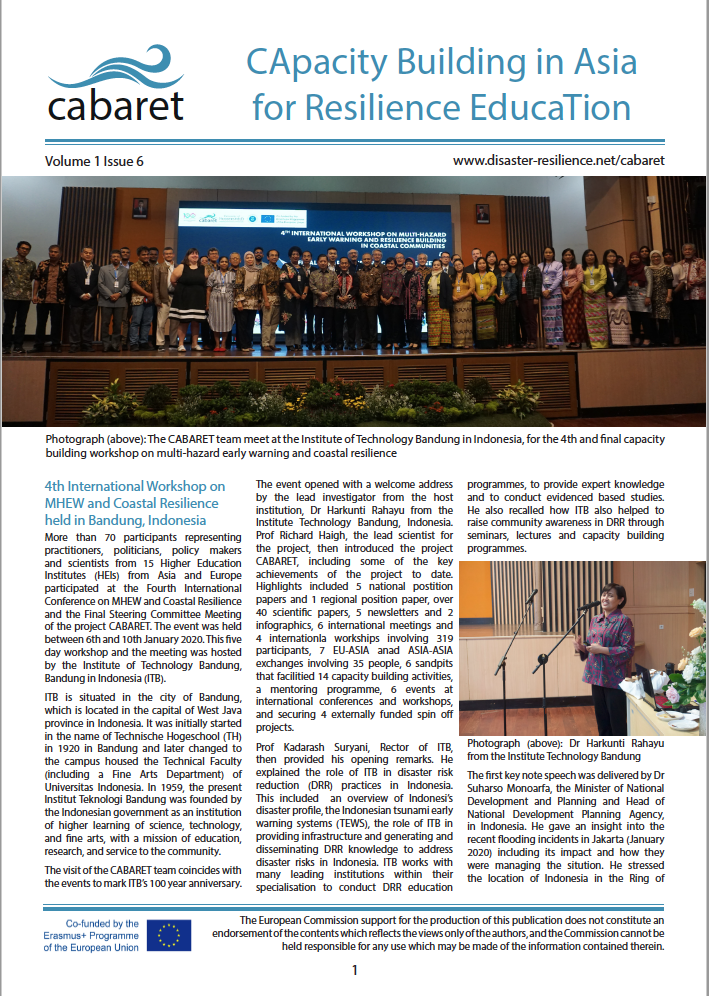National Position Papers
| Indonesia | Myanmar | Philippines | Sri Lanka | Maldives |
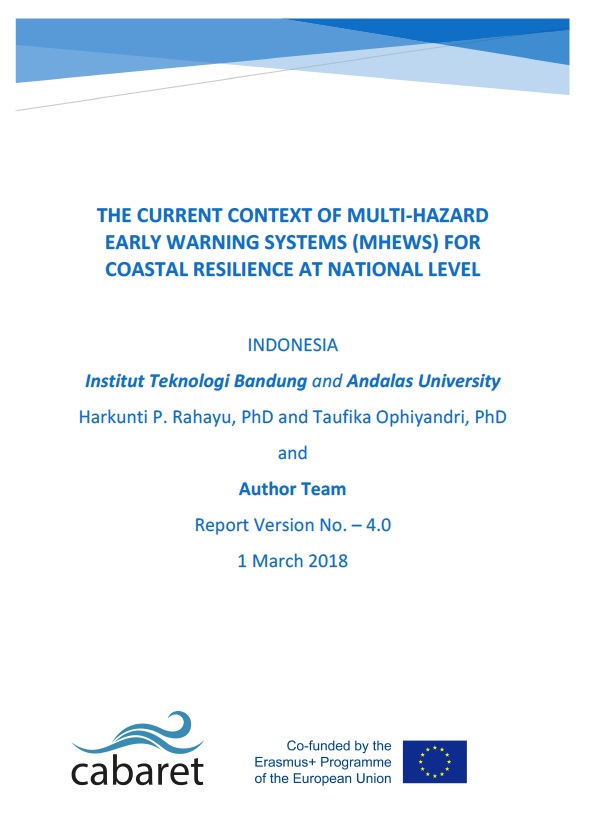 |
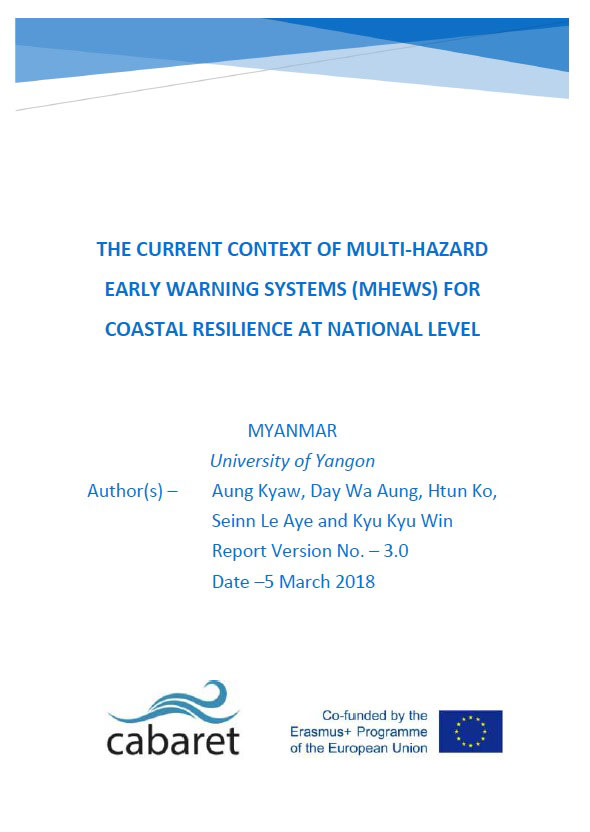 |
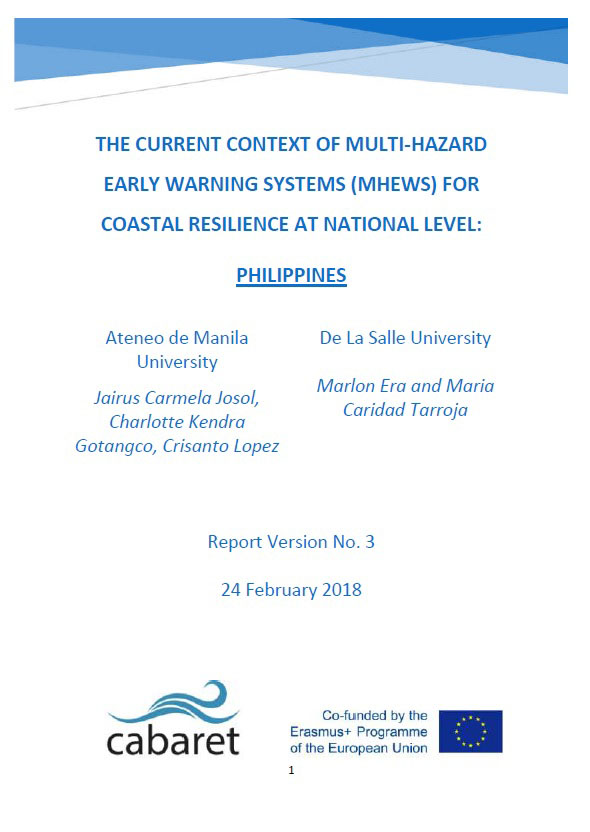 |
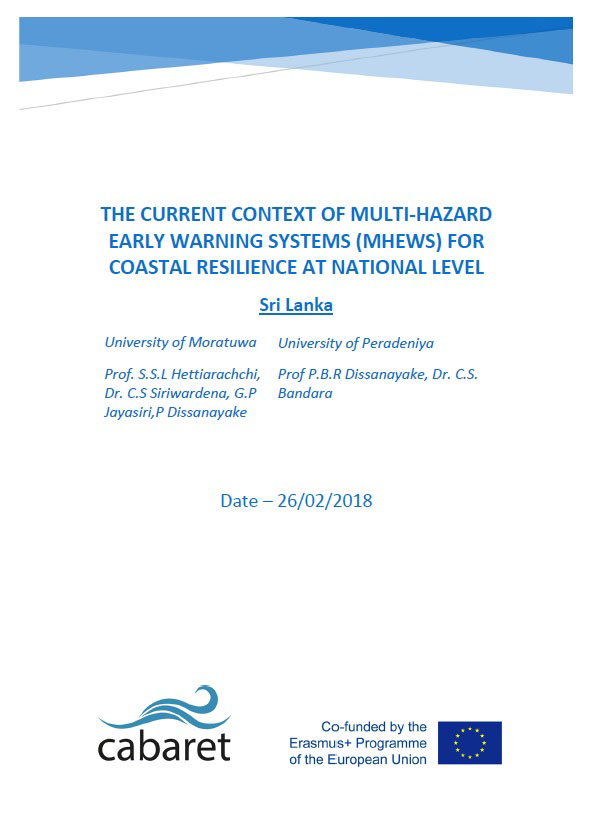 |
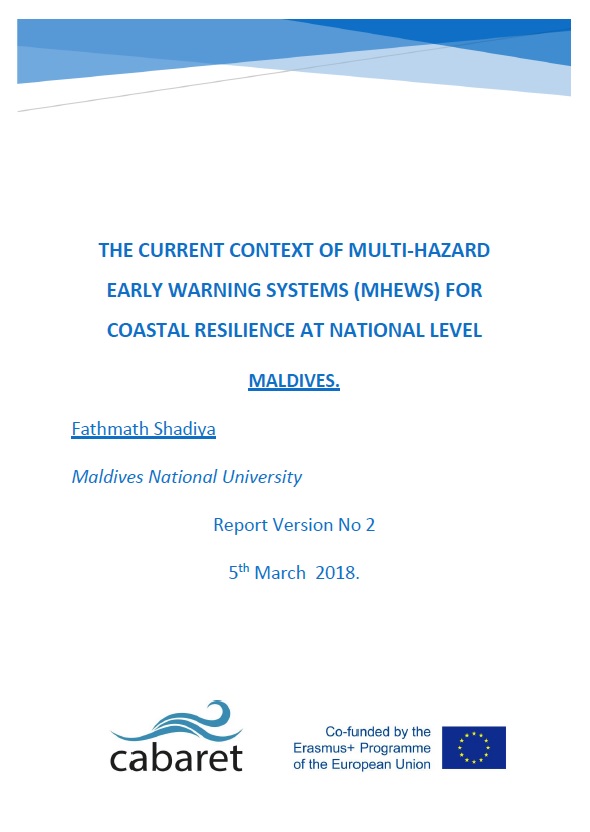 |
Regional Paper
Info-Graphics
| Impact of Coastal Hazards in Asia | Building Disaster Resilience in Coastal Regions of Asia | EU-Asia collaborative project achievement |
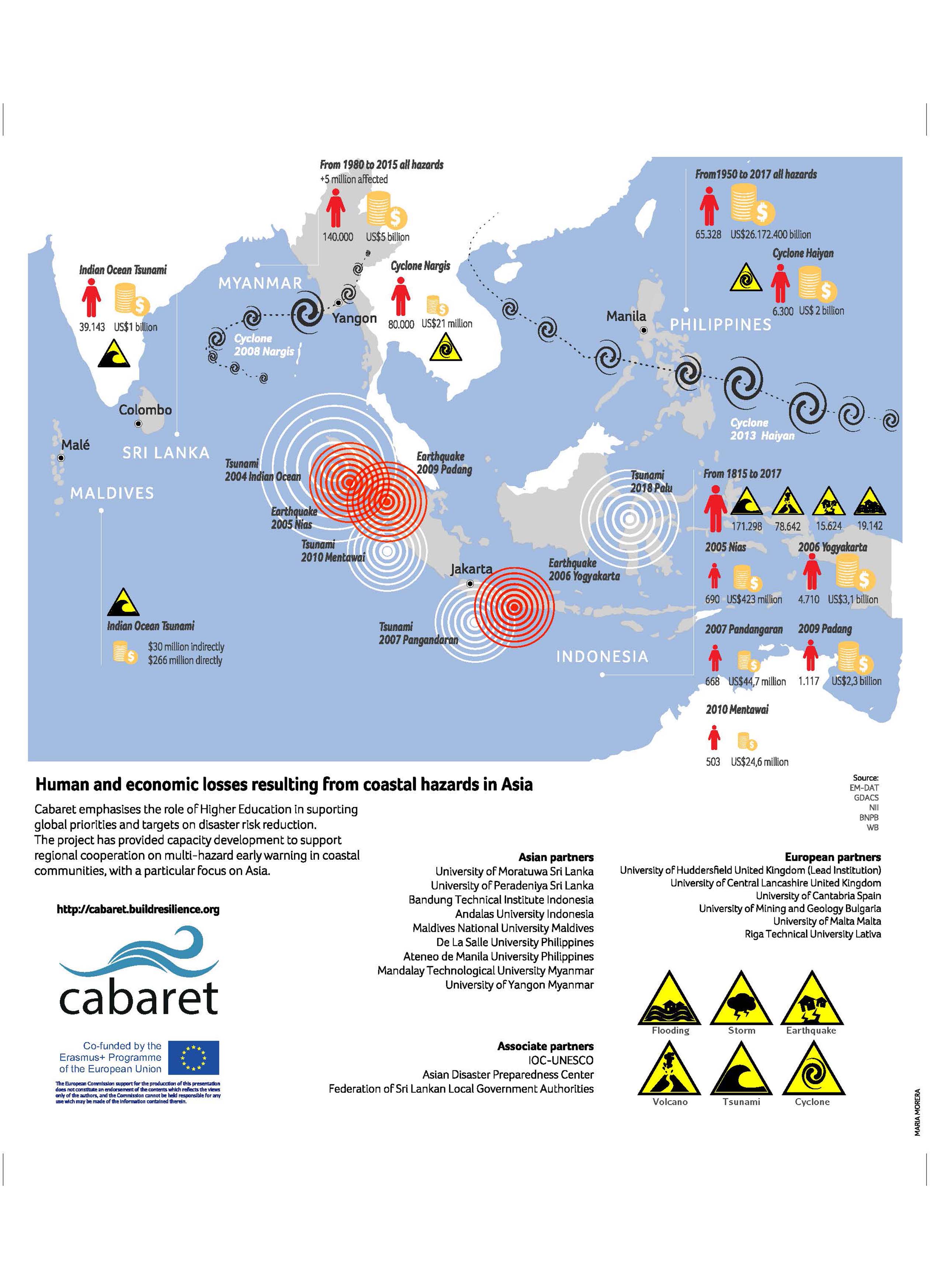 |
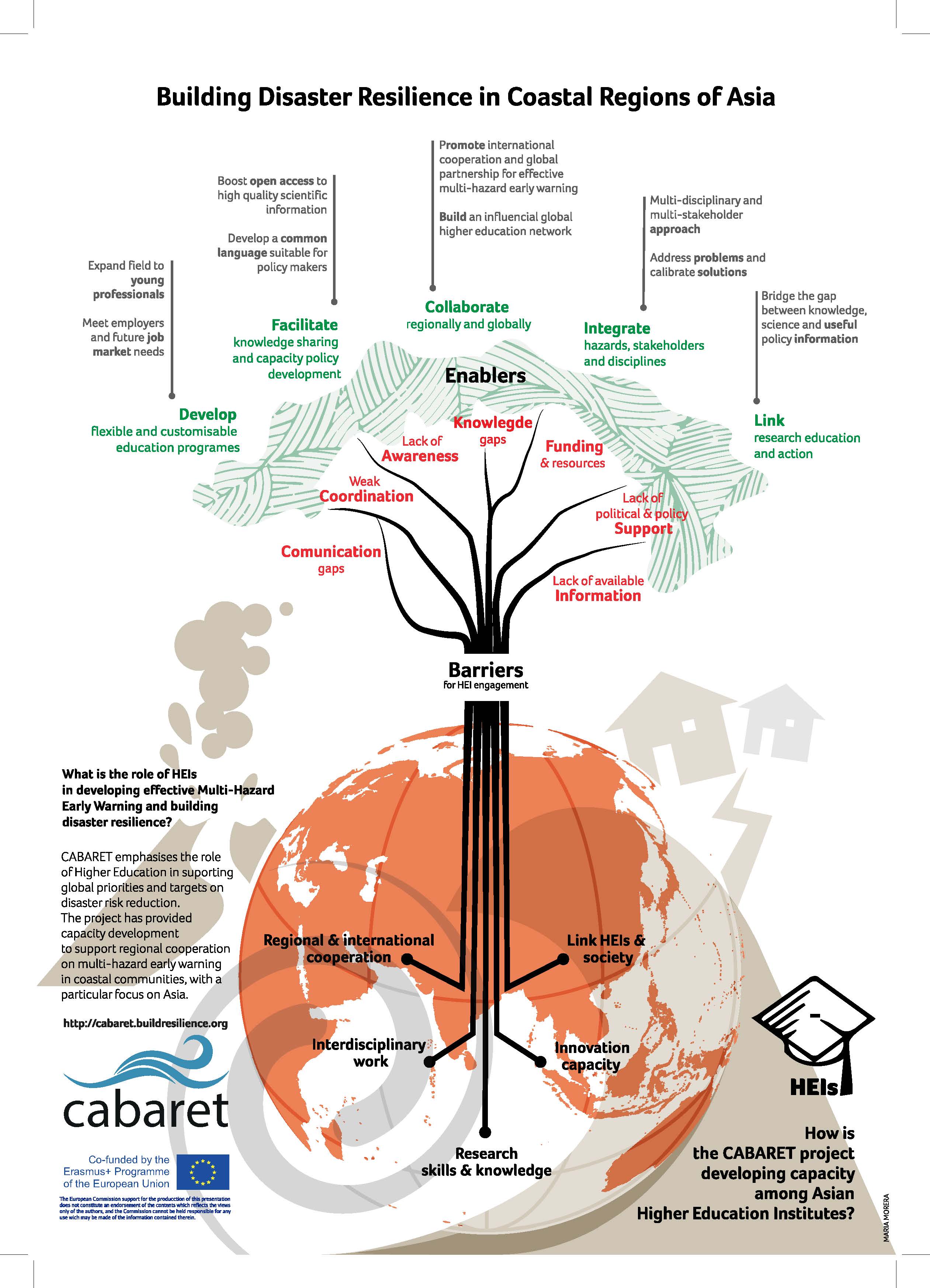 |
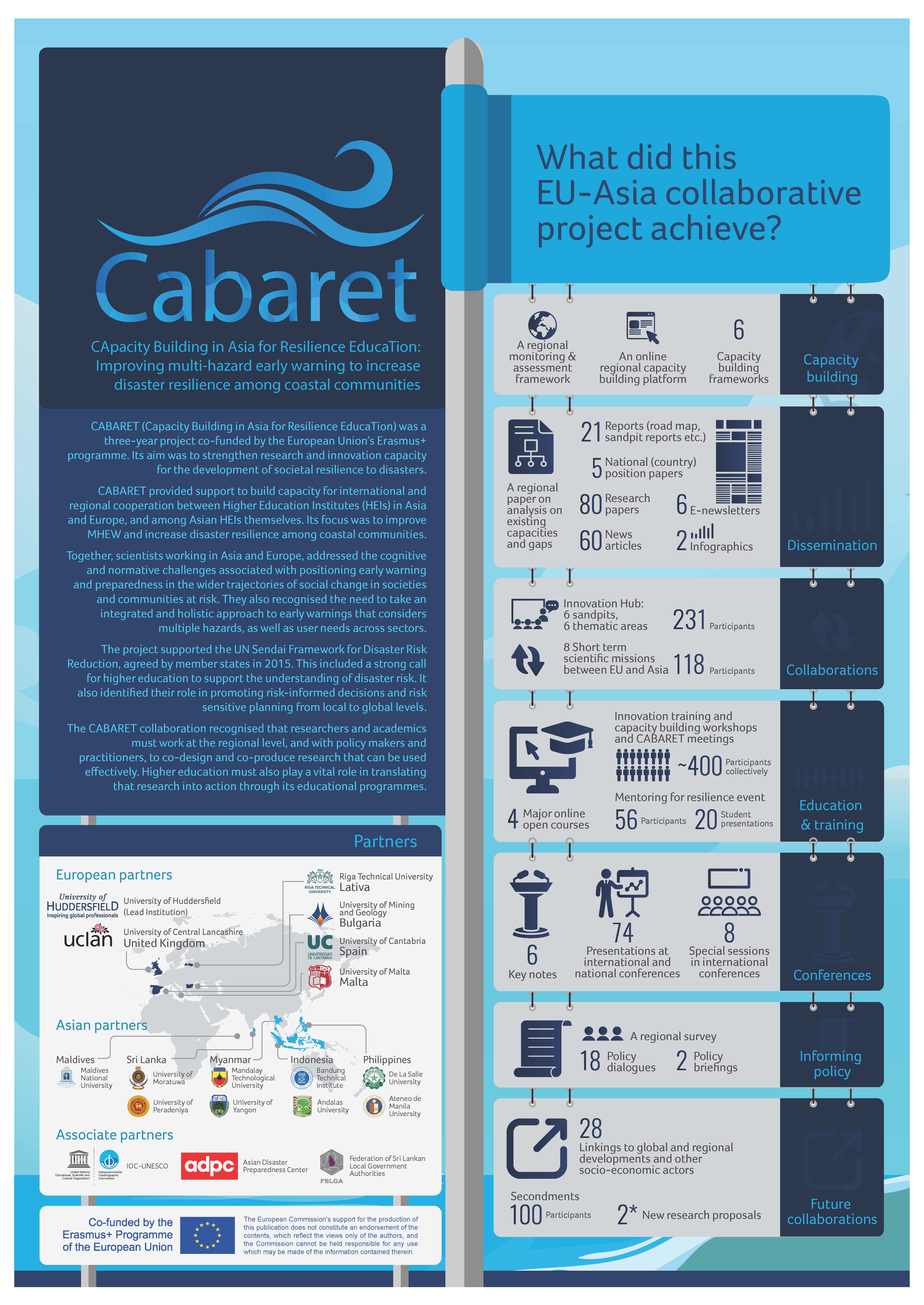 |
CABARET Project Report
Research Outputs
Book
Book Chapters
Journal papers
Conference papers
Short Term Scientific Missions (STSM) - Reports
| STSM 1 | STSM 2 | STSM 3 | STSM 4 | STSM 5 | STSM 6 | STSM 7 |
|
|
|
|
|
|
|
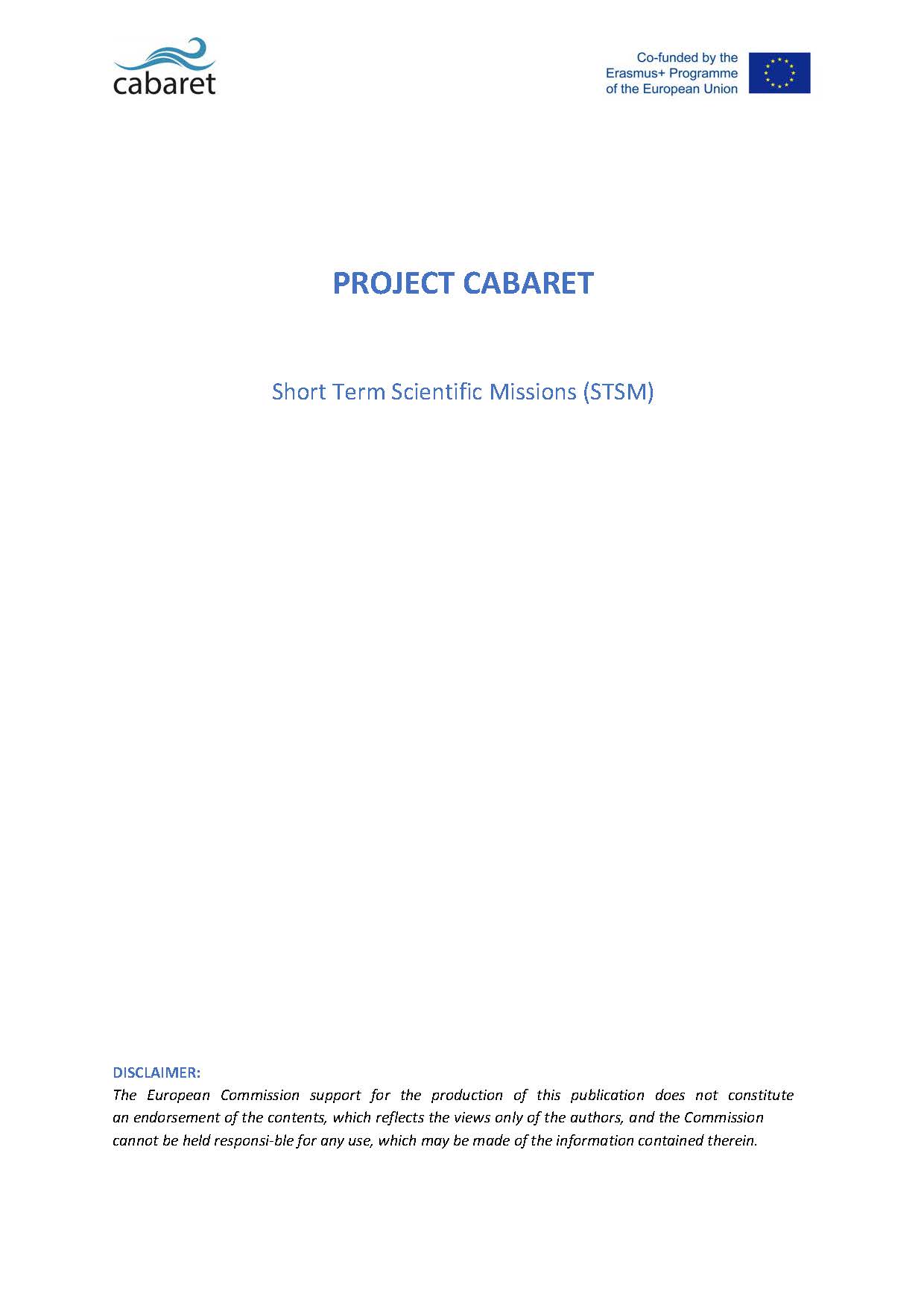 |
Sandpit Reports
| Evacuation Planning | Local Government and Risk Mapping |
PPP Initiatives |
Disaster and Climate Change Resilience | Enhancing Disaster Resilience Education | Technical legal and socio-cultural complexities |
|
|
|
|
|
|
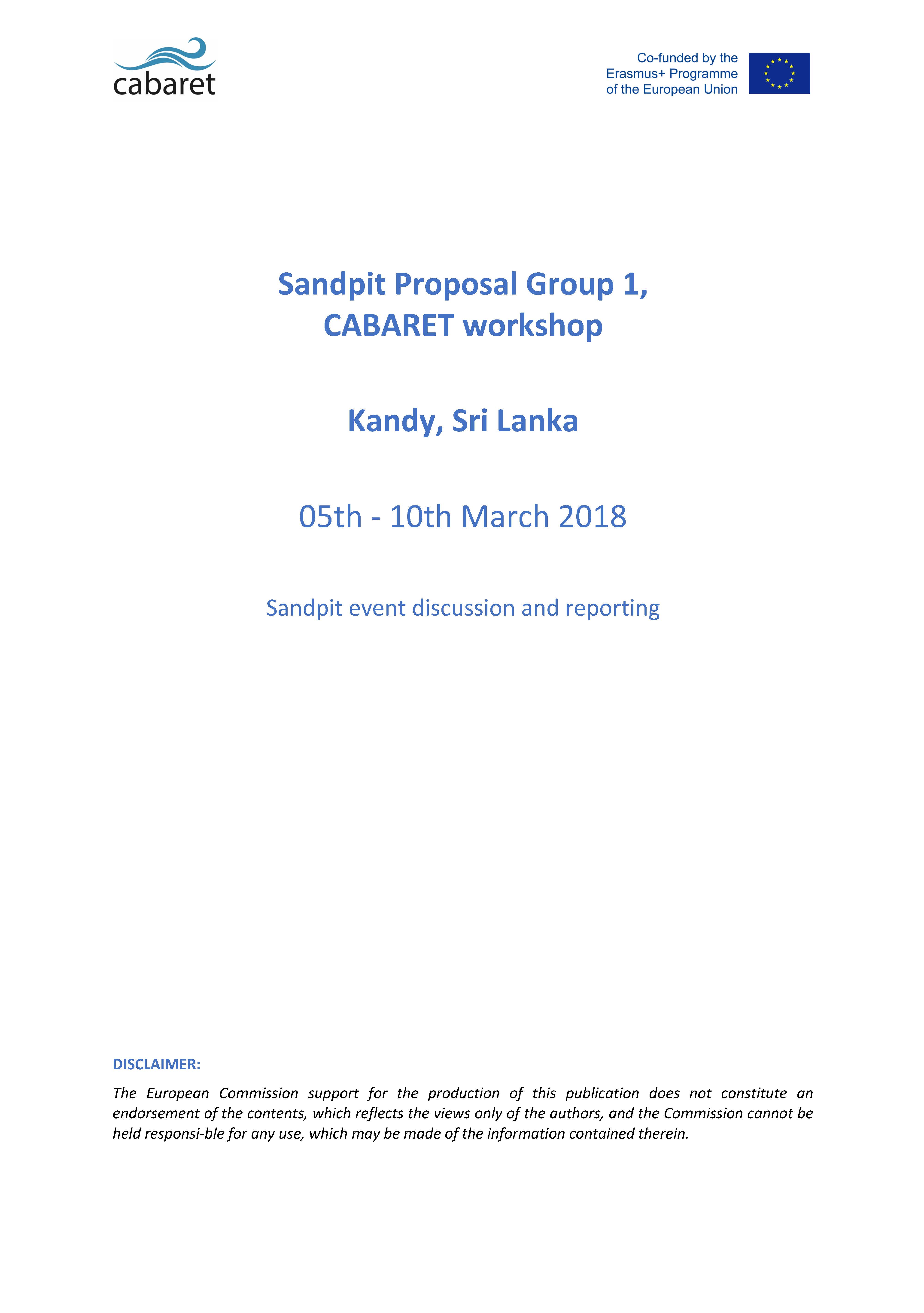 |
Mentoring for Resilience Report
CABARET Flyer
Briefing Papers
Project dissemination will include a series of newsletters published frequently. All published newsletters can be found below.
| Vol 1 Issue 1 | Vol 1 Issue 2 | Vol 1 Issue 3 | Vol 1 Issue 4 | Vol 1 Issue 5 | Vol 1 Issue 6 |
Write for CABARET Newsletter
The CABARET project provides an opportunity for people to share knowledge and experience. This newsletter is written by the CABARET membership for the CABARET membership, and also for other readers working with national and international NGOs, UN agencies, government and donor institutions, academics, and independent consultants. We, the Editors of CABARET newsletter, welcome contributions from CABARET partners and associate partners. We are also pleased to consider articles submitted by anyone involved in research capacity building within the context of disaster resilience among coastal communities.
If you have knowledge and experience to share, please consider making a contribution. The scope of contributions should be consistent with the aims of CABARET. Typically, we welcome contributions in the following categories (word counts are advisory):
- News and reports from activities and events linked to the project (100 - 500 words)
- Reports on developments in the field / projects that are being investigated by partners – these do not have to be activities directly linked
to the project, but should be relevant to project partner institutions (100 - 500 words) - Useful Resources – relevant publications, websites (up to 20 - 40 words)
- Upcoming events (20 words)
If you have an idea for an article that you would like to develop, the Editors would be pleased to discuss it with you - send an email to Ms Kinkini Hemachandra (This email address is being protected from spambots. You need JavaScript enabled to view it.) (The Editors reserve the right to edit any contribution)
CApacity Building in Asia for Resilience EducaTion - CABARET
A recent project, funded by the European Union, set out to strengthen research and innovation capacity for the development of societal resilience to disasters. The project, called CABARET (Capacity Building in Asia for Resilience EducaTion), has been providing support to build capacity for international and regional cooperation between Higher Education Institutes (HEIs) in Asia (region 6) and Europe, and among Asian HEIs themselves, to improve multi-hazard early warning (MHEW) and increase disaster resilience among coastal communities.
CABARET has been co-funded by an EU Erasmus+ programme grant, and initially ran for three years. The project has been led by the University of Huddersfield’s Global Disaster Resilience Centre, based in the UK. They have been joined by a consortium of 15 European and Asian higher education institutions from Bulgaria, Indonesia, Latvia, Maldives, Malta, Myanmar, Philippines, Spain, Sri Lanka and the UK. Further, the project team has been working with 3 associate partners: Asian Disaster Preparedness Centre (ADPC), IOC/UNESCO and the Federation of the Local Governments Association in Sri Lanka.
Over the last three years, the CABARET consortium has been identifying research and innovative capacity needs across Asian higher education institutions in Indonesia, Maldives, Myanmar, Philippine and Sri Lanka, and contributed to building capacity that can broaden early warning to provide a comprehensive, multi-hazard framework. This website contains further information about the project’s activities and outcomes.
The new UN Sendai Framework for Disaster Risk Reduction, agreed by member states in 2015, includes a strong call for higher education to support the understanding of disaster risk and promote risk-informed decisions and risk sensitive planning from the local to the global levels.
Researchers and educators must work at the regional level, and with policy-makers and practitioners to co-design and co-produce research that can be used effectively. Higher education must also play a vital role in translating that research into action through its educational programmes. Capacity should be developed through scientific research and development of knowledge bases as well as through education and training.
The overall goal of this initiative was to build capacity within Higher Education that develops a regional, self-perpetuating fund of knowledge and experience in MHEW, and the development of more resilient coastal communities. For further information on the CABARET project, contact Professor Richard Haigh (This email address is being protected from spambots. You need JavaScript enabled to view it.) and Professor Dilanthi Amaratunga (d.amaratunga@hud. ac.uk) or visit the website at http://cabaret.buildresilience.org/index.php
